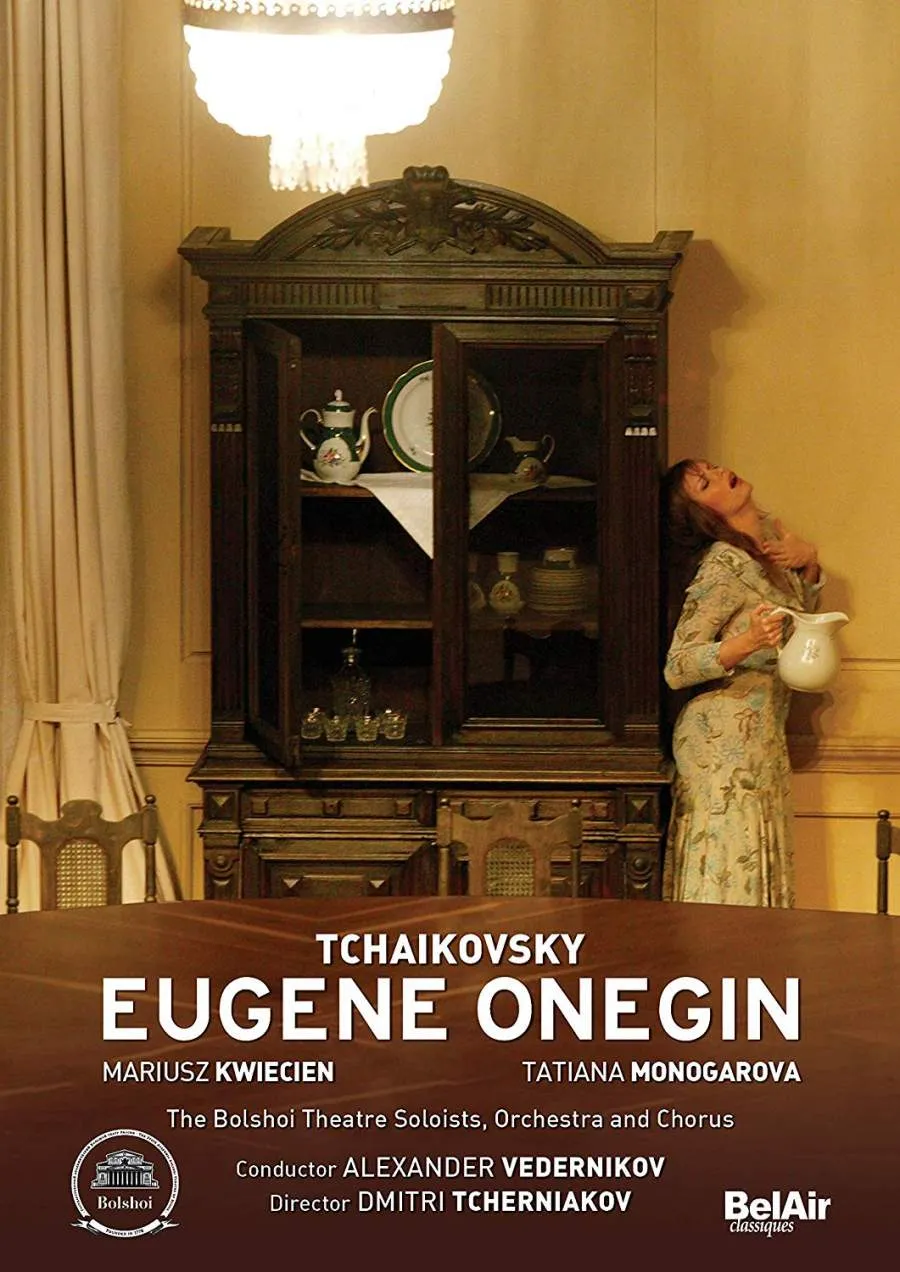
Tchaikovsky Eugene Onegin Mariusz Kwiecień, Makvala Kasrashvili, Tatiana Monogarova, Margarita Mamsirova, Emma Sarkisyan, Andrey Dunaev, Anatolij Kotscherga, Valery Gilmanov; Bolshoi Theatre Soloists, Chorus & Orchestra/Alexander Vedernikov; dir. Dmitri Tcherniakov (Paris, 2008) Bel Air Classique DVD: BAC246; Blu-ray: BAC446 176 mins
The curtain rises on a large dining room where Madame Larina is entertaining guests. So, where’s the traditional Russian country harvest we expect to see in the first of Tchaikovsky’s ‘Lyric Scenes’? Is this simply another modish revision of a perennial favourite?
Then, when Tatiana and Olga are made to sing for the guests seated around the table, the rouble drops. Tatiana is as much trapped as Onegin by the corseted conventions of society, doomed to a lifetime of small talk lunches and oppressive dinners. So, in the final act Prince Gremin’s St Petersburg dining room – all plush red and white and crystal chandeliers – is a gilded cage for a woman who is now an oligarch’s trophy bride
Concepts apart, what Dmitri Tcherniakov brings to this Bolshoi production is an almost Chekhovian attention to detail. A distrait Tatiana unthinkingly tugs at her hair in the letter scene, Olga hunts for a lost earring as Lenski sings his aria before the duel, and Onegin desperately searches for a place to sit at the Gremin’s vast dining table. These are flesh and blood men and women even if they are detached from any specific historical period.
Tcherniakov’s singers reward him with some remarkable performances. Tatiana Monogarova is deeply affecting as Tatiana both vocally and dramatically, on edge from the very start, heart-stopping in the letter scene and utterly distraught when Onegin returns. The saturninely handsome Polish baritone Mariusz Kwiecień is quite simply the best Onegin around at present and Andrey Duane’s Lenski has exactly the right degree of romantic desperation; his singing suggesting the naive and disappointed suitor. This is a production that triumphantly reclaims Tchaikovsky’s music drama for Russia, waltzing on the edge of an emotional volcano like Chekhov’s chattering classes.
Christopher Cook